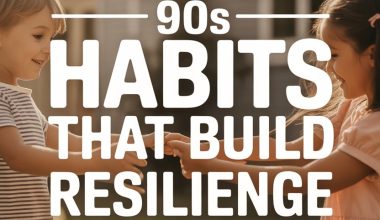Nothing quite prepares you for a child’s emotional meltdown.
One minute, you’re spooning peas and planning tomorrow’s snack box. The next, your five-year-old is channeling a tornado, hurling dinosaurs and wailing about the injustice of bedtime.
If you’ve ever found yourself white-knuckling a coffee mug while your child has a Category 5 tantrum, you’re in the right place. Even the calmest parent can feel their patience evaporate in the face of a full-throttle outburst.
Yet, as every seasoned mum or dad knows, your response sets the tone for what comes next—peaceful de-escalation or a household-wide meltdown.
Let’s get into the nitty gritty of keeping your cool when your little one absolutely loses theirs.
Pause and Breathe (Seriously, It’s Not Just Yoga Nonsense)
When chaos erupts, your brain’s fight-or-flight system kicks into gear. You might feel your pulse rise, your jaw clench, and, if you’re anything like me, an urge to join the tantrum yourself (possibly with more swearing).
Before reacting, stop. Literally freeze for two seconds.
If it helps, channel your inner David Attenborough observing a rare animal in its natural habitat. Take a slow breath. Lengthen the exhale.
Research shows that conscious breathing tames your nervous system and can even lower parental stress on the spot.
This tiny pause buys you time to choose your next move, rather than just reacting.
Remind Yourself: It’s Not Personal
The shrieks might sound like a personal attack (“You’re the WORST mummy EVER!”), but they’re not.
Children, especially younger ones, lack the emotional vocabulary to say, “I’m overwhelmed and need help regulating my feelings, please.” Instead, you get the full dramatic monologue, complete with foot stomping and crocodile tears.
This is about their big feelings, not you. Stepping back mentally helps separate your child’s emotions from your own sense of competence as a parent. (Your dignity remains intact, promise.)
Get Down to Their Level
Towering over a sobbing child with crossed arms might feel authoritative, but it rarely calms anyone. Kneel, squat, or sit down so you’re at eye level.
This simple move makes you less scary and invites connection. Plus, it’s harder to yell when you’re eye to eye with an adorable snot bubble.
You’re not only helping your child regain composure—you’re also signaling that you’re a safe haven, even when they’re at their loudest.
Name the Emotion—Not the Drama
Kids (and, honestly, adults) often just want to be heard.
Instead of launching into a lecture or trying to logic away their feelings, try “You’re really angry that we have to leave the park.” Or “It’s so disappointing when the tablet has to go away.”
Child psychologists love this trick, and for good reason. Validating your child’s feelings helps calm the emotional storm, making it easier for your little one to move on.
No need to agree with their demand for biscuits at 6am—just acknowledge the feeling.
Channel Your Inner Robot (But Not the Creepy Kind)
Ever tried to out-shout a screaming five-year-old? Spoiler: you’ll lose. Instead, speak in a calm, almost monotone voice. Lower your volume as the situation escalates.
It feels bizarre, but this “whispering in chaos” technique works wonders.
Kids take emotional cues from their grown-ups. If you model calm, you’re showing them how to handle big feelings.
If nothing else, you’ll be too busy focusing on your robot-voice to say something you’ll regret later.
Don’t Reason With a Flooded Brain
Attempting to explain the merits of bedtime to a child mid-meltdown is like teaching quantum physics to a goldfish. When kids are in the thick of big emotions, their rational brain is temporarily offline.
Save the pep talk for later. Focus on soothing and surviving—for both of you. Offer a hug if your child wants one, or just sit quietly within arm’s reach.
Sometimes, just being present is enough.
Pick Your Battles (Then Pick Fewer)
Does it truly matter if they wear the Spiderman costume to the supermarket? Unless you’re attending a royal garden party, probably not. You don’t need to win every argument.
Choosing which hills to stand on saves your energy for the moments that really matter. Plus, giving kids a bit of control over small choices can stave off battles over the big stuff.
Have a Go-To Calming Routine
Routine is magic for stressed-out brains—yours included. Some families have a “calm down corner” with soft blankets, squishy balls, or favourite books.
Others swear by silly breathing exercises (“Blow up the balloon!”) or a quick trip outside.
Test a few ideas when everyone is calm, then use your favourites when tempers flare. Mindfulness apps for kids can also be handy for older children—or overwhelmed parents.
Mind Your Own Triggers
Ever notice how your child’s tantrums are 10 times worse when you’re running late or haven’t slept? (Spoiler: they are.) Keep an eye on your own stress levels and triggers.
If you feel yourself unravelling, it’s okay to call a timeout for yourself.
Step into the loo, splash your face with water, or blast your “sanity playlist” for a minute. Looking after your emotions isn’t selfish; it’s survival.
Model What Regulating Emotions Looks Like
Yes, it’s true: our kids learn more from what we do than what we say (unfortunately).
Narrate your feelings out loud: “I’m feeling frustrated right now, so I’m taking some deep breaths.” Or, “This is tricky, but I know we’ll get through it.”
You’re laying the groundwork for your child to do the same, even if it feels awkward now. Think of it as emotional first aid training for the whole family.
Know When to Call for Backup
Every parent has a limit.
If you’re at the end of your rope (or your child’s behaviour is genuinely worrying), it’s time to seek help. Chat with your paediatrician, health visitor, or a parenting support group.
Sometimes, fresh eyes—or just a cup of tea with another frazzled parent—makes all the difference.
There’s no prize for “toughing it out” alone, and asking for support is a sign of wisdom, not weakness.
When the Dust Settles
No parent gets through childhood unscathed by meltdowns—yours or your child’s. Some days, all you can do is take a breath, keep everyone safe, and ride out the hurricane.
The goal isn’t perfect calm (that’s for Buddhist monks or robots), but finding a little more grace for yourself and your child, even when emotions run wild.
With practice, staying cool during a meltdown gets easier.
Your child learns to trust that you can handle their biggest feelings. You learn that even the wildest storm eventually passes.
And if all else fails? There’s always chocolate.
Or at the very least, five minutes locked in the loo with your phone.




